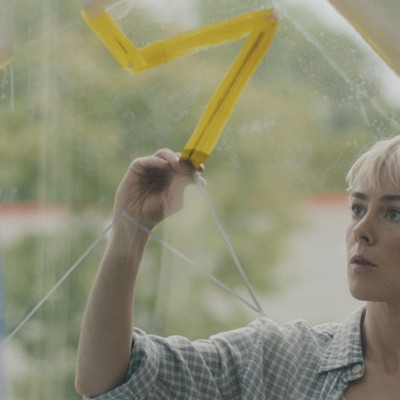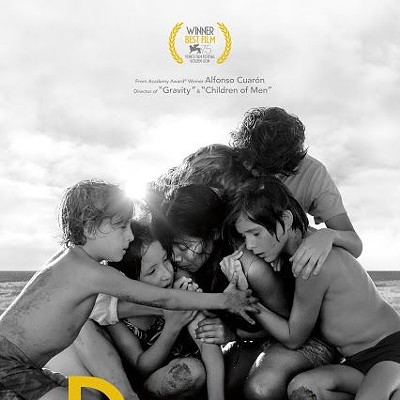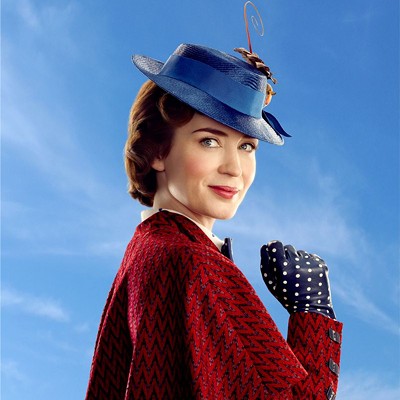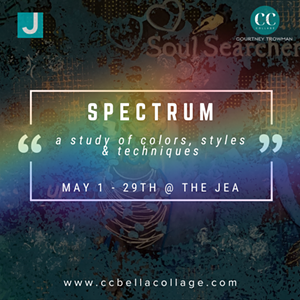Now Showing
[
{
"name": "Air - MedRect Combo - Inline Content 1",
"component": "14680855",
"insertPoint": "7",
"requiredCountToDisplay": "5",
"parentWrapperClass": "fdn-ads-inline-content-block"
},{
"name": "Air - MedRect Combo - Inline Content 2",
"component": "14680856",
"insertPoint": "15",
"requiredCountToDisplay": "9",
"parentWrapperClass": "fdn-ads-inline-content-block"
},{
"name": "Air - SVP - Leaderboard - Inline Content - 2",
"component": "16852291",
"insertPoint": "10",
"requiredCountToDisplay": "10",
"parentWrapperClass": "fdn-ads-inline-content-block"
},{
"name": "Air - SVP - Leaderboard - Inline Content - 3",
"component": "16852292",
"insertPoint": "20",
"requiredCountToDisplay": "18",
"parentWrapperClass": "fdn-ads-inline-content-block"
},{
"name": "Air - SVP - Leaderboard - Inline Content - 1",
"component": "16852290",
"insertPoint": "25",
"requiredCountToDisplay": "22",
"parentWrapperClass": "fdn-ads-inline-content-block"
}
]
THE AVIATOR PPP1/2
This sprawling biopic about the notorious Howard Hughes employs all the cinematic razzle-dazzle weve come to expect from director Martin Scorsese, yet theres an added layer of excitement as the eternal cineast, in true Back to the Future style, finally gets to step back in time via his meticulous recreations of the sights and sounds of Old Hollywood. Rather than trying to cram an overstuffed life into one motion picture, Scorsese and writer John Logan instead have chosen to focus on Hughes anecdote-rich period from the late 20s through the late 40s. This time frame allows Scorsese ample opportunity to bask in the glow of his movie memories, as this was the period when the billionaire industrialist (played by Leonardo DiCaprio, whose emotional intensity makes up for his less-than-commanding physical presence) decided to try his hand at making movies. Scorsese and Logan lovingly detail Hughes lengthy attempt to get his World War I flick Hells Angels off the ground, even as it drains his personal assets at a head-spinning rate. Theres also screen time devoted to his battles with the censors over Jane Russells ample cleavage in The Outlaw, his appearances on the Hollywood social scene (with cameos by Jude Law as Errol Flynn and Gwen Stefani as Jean Harlow), and, most tellingly, his romances with Katharine Hepburn (witty Cate Blanchett in a show-stealing characterization) and Ava Gardner (miscast Kate Beckinsale, far too girly to be playing this legendary woman). Like most biopics, The Aviator plays fast and loose with many of the specifics of Hughes life, but when it hones in on the effects of a disease so ghastly that it could bring even this visionary to his knees, the historical inaccuracies suddenly seem irrelevant. At its best, the movie is a stirring tale about a man whose inner drive allowed him to climb ever higher and higher, grazing the heavens before his inner demons seized the controls and forced the inevitable, dreary descent.
THE LIFE AQUATIC WITH STEVE ZISSOU PPP
Writer-director Wes Andersons last two movies, Rushmore and The Royal Tenenbaums, were little more than computer programs downloaded in Quirk Express. It isnt that I disliked the pictures on the contrary, I admired the off-kilter worldview they both shared but it took the efforts of two vets (Bill Murray in Rushmore, Gene Hackman in Tenenbaums) to bring any semblance of feeling to what often came across as clinically detached idiosyncrasy. The Life Aquatic With Steve Zissou is basically more of the same. Yet for all its apparent insincerity, Andersons movie keeps us watching. And it does so not because we especially care about the fates of the characters but because we sense the story will invariably play out in trippy, unconventional ways that will surprise and maybe even delight us. Bill Murray, who earned several critics awards for Rushmore before getting lost in the long shadow of Hackman in Tenenbaums, ably fills the most complete character yet written for him by Anderson. Hes Steve Zissou, a Jacques Cousteau-style oceanographer whos having, shall we say, a run of bad luck. His nautical documentaries have fallen out of fashion; his ships equipment is so antiquated that he stoops to stealing supplies from a well-equipped rival (Jeff Goldblum) and his marriage to a brainy aristocrat (Anjelica Huston) is showing signs of strain. His shipmates demise inspires the subject of his next picture hunting down and killing a shark. But before he can get underway, he picks up two unexpected passengers: Jane Winslett-Richardson (Cate Blanchett), a pregnant reporter writing a profile piece on him, and Ned Plimpton (Owen Wilson), a Kentucky pilot who claims he might be the son that Zissou never knew he had. The interaction between the characters suffers from Andersons aloof style. It may be impossible to love The Life Aquatic With Steve Zissou, but its remarkably easy to drown oneself in its sea of eccentricity.
ANDREW LLOYD WEBBERS THE PHANTOM OF THE OPERA PP1/2
This adaptation of the eternally running Broadway smash draws its strength from the performances of the three principal actresses: the classically trained Emmy Rossum is affecting as Christine, the Phantoms obsession; Minnie Driver hams it up beautifully as obnoxious opera star La Carlotta; and Miranda Richardson adds quiet authority as Madame Giry, the only person who knows the Phantoms secrets. By contrast, Gerard Butlers Phantom isnt particularly mysterious or menacing; he seems more like a disgruntled opera fan who should be asking for a refund rather than dropping chandeliers on patrons heads. Ultimately, this is simply a static filmization of the stage play, with no serious attempt to open up the story and take it out of the realm of the theater.
MEET THE FOCKERS PPP
The drop in quality between a hit movie and its sequel is usually so steep that just thinking about it could lead to a broken neck. Happily, no such falloff exists between Meet the Parents and Meet the Fockers. Once again we find Greg Focker (Ben Stiller) seeking the approval of prospective father-in-law Jack Byrnes (Robert De Niro), the retired CIA operative whos not exactly thrilled that his daughter (Teri Polo) has chosen this nervous Nellie to be her life partner. Yet even as Jack continues to try to get used to the idea, he finds his agitation climbing even higher after he and his more accommodating wife (Blythe Danner) are invited to spend a weekend with Gregs parents (Dustin Hoffman and Barbra Streisand), a hippie couple whose sensitive natures and open displays of affection rub Jack the wrong way. The primary pleasure is watching veteran comedian Stiller once again squaring off against De Niro, whose recent attempts at shtick have only worked in this series.
LEMONY SNICKETS A SERIES OF UNFORTUNATE EVENTS PP 1/2
As Count Olof, a villainous actor who seeks to inherit a fortune by knocking off three intelligent orphans (Liam Aiken, Emily Browning, and Kara and Shelby Hoffman alternating as baby Sunny), Jim Carrey delivers a disappointing performance, the sort of calculated turn we had come to routinely expect from Robin Williams until his recent dramatic awakening. Luckily, other elements of the project come to the rescue. The children are aptly cast, and the translations of baby Sunnys coos and cackles are very funny. Jude Law provides the voice-over narration as writer Lemony Snicket, and his moody musings make up the bulk of the best lines in Robert Gordons screenplay.
SPANGLISH PPP
The movies true star is a newcomer to American cinema, celebrated Spanish actress Paz Vega. Vega delivers a luminescent performance in the movies largest part: Flor, a Mexican immigrant with brainy 12-year-old daughter Cristina (Shelbie Bruce) in tow. Flor lands a job as housekeeper for Debbie Clasky (Tea Leoni) and her husband John (Adam Sandler), a sensitive chef constantly working at being a good dad to an insecure daughter (terrific Sarah Steele) and a patient husband to his lunatic wife. But as Debbies behavior continues to alienate everyone around her, John finds himself seeking solace in the company of Flor, a development that could easily lead to complications down the line.
CLOSER PPP1/2
Viewers not interested in shifting through the rubble of the four main characters immorality in an effort to locate some common truths will have no use for this picture, surely the most divisive film about modern relations since Eyes Wide Shut. Others willing to dig deeper will be rewarded not only with some choice dialogue and a quartet of finely etched portrayals but also with a heady buzz that will remain long after the movies over. Set in London, the movie centers on two British males and two American females all strangers when the story opens. Dan (Jude Law) is a caddish obituary writer who falls for sweet-natured stripper Alice (Natalie Portman); Anna (Julia Roberts) is a moody photographer who ends up attached to dermatologist Larry (Clive Owen, nailing the films most complex role). With time jumps that will catch the daydreaming viewer off guard, the film tracks relationships, as Dan chases Anna, Larry sniffs around Alice, and all four characters take the notion of brutal honesty to such an extreme that their words suddenly qualify as deadly weapons. Many will criticize the film because the characters motivations dont always make sense and their actions arent often in their own best interest. And that differs from real life exactly how? w
BLADE: TRINITY P1/2
Blade II was that rare sequel that managed to trump the original, but the franchise ascension ends there. Blade: Trinity is easily the least of three, an overlong action yarn that has nothing fresh to say on the subject of vampires nor on the curious holding pattern of Wesley Snipes career.
ALEXANDER P
Alexander isnt just one of the worst movies of the year - its the worst film ever made by Oliver Stone, an immensely talented filmmaker who, three Oscar wins notwithstanding, has never received enough credit for a strong filmography. But hes gone terribly astray with Alexander. Colin Farrell gets trampled under the weight of Stones expectations in tackling the role of Alexander, the warrior king whose claim to fame was conquering most of the known world by the time he was Ashton Kutchers present age. Anthony Hopkins provides the doddering exposition - lots and lots and lots of exposition - as Alexander pal Ptolemy, who, 40 years later, relates their adventures with all the enthusiasm of a theater employee removing bubble gum from under the armrests. As Alexanders parents, Angelina Jolie (sporting an accent that suggests shes channeling Bela Lugosi) and Val Kilmer get to bellow and howl and gnash their teeth, to little avail. The homoerotic content (Alexander was bisexual), which had been receiving more gossip-rag ink than any other aspect of the film, is conveyed through an endless series of demure looks between the male players; this skirting around the issue may make the movie more palatable to a nation thats passing anti-gay measures with Aryan expediency, but it also adds a campy quality thats furthered enhanced by laughable dialogue.
NATIONAL TREASURE PP
Theres a certain crazy appeal to the central thrust of National Treasure, which suggests that George Washington, Benjamin Franklin and other Founding Fathers did such an exemplary job of hiding a sizable bounty that the only way to find it is to unscramble the clues that have been hidden on the Declaration of Independence, the Liberty Bell and other mainstays of American History 101. This finds Nicolas Cage (as the do-gooder who seeks to protect the treasure from greedy foreigners) again turning his back on his talents to sleepwalk through yet another undemanding part. The only treasure connected with this film is the gargantuan paycheck the actor received for his somnambular contribution.
FINDING NEVERLAND PPP
Almost one year after being treated to a delightful live-action version of Peter Pan, we now get a fanciful tale that seeks to explain how playwright J.M. Barrie initially came up with the idea for this childrens classic. What ends up on the screen is as much fiction as fact, but its the sort of inspirational saga that will make audiences wish this was the way it really happened. A gentle Johnny Depp is just right as Barrie, who, as the story begins, is unhappy with both his work and with his marriage to a beauty (Radha Mitchell) who doesnt share his passions. He eventually finds inspiration through a widow (Kate Winslet) and her four sons, but these newly formed friendships are hampered by interference from the widows stern mother (Julie Christie) as well as his own neglected wife.
This sprawling biopic about the notorious Howard Hughes employs all the cinematic razzle-dazzle weve come to expect from director Martin Scorsese, yet theres an added layer of excitement as the eternal cineast, in true Back to the Future style, finally gets to step back in time via his meticulous recreations of the sights and sounds of Old Hollywood. Rather than trying to cram an overstuffed life into one motion picture, Scorsese and writer John Logan instead have chosen to focus on Hughes anecdote-rich period from the late 20s through the late 40s. This time frame allows Scorsese ample opportunity to bask in the glow of his movie memories, as this was the period when the billionaire industrialist (played by Leonardo DiCaprio, whose emotional intensity makes up for his less-than-commanding physical presence) decided to try his hand at making movies. Scorsese and Logan lovingly detail Hughes lengthy attempt to get his World War I flick Hells Angels off the ground, even as it drains his personal assets at a head-spinning rate. Theres also screen time devoted to his battles with the censors over Jane Russells ample cleavage in The Outlaw, his appearances on the Hollywood social scene (with cameos by Jude Law as Errol Flynn and Gwen Stefani as Jean Harlow), and, most tellingly, his romances with Katharine Hepburn (witty Cate Blanchett in a show-stealing characterization) and Ava Gardner (miscast Kate Beckinsale, far too girly to be playing this legendary woman). Like most biopics, The Aviator plays fast and loose with many of the specifics of Hughes life, but when it hones in on the effects of a disease so ghastly that it could bring even this visionary to his knees, the historical inaccuracies suddenly seem irrelevant. At its best, the movie is a stirring tale about a man whose inner drive allowed him to climb ever higher and higher, grazing the heavens before his inner demons seized the controls and forced the inevitable, dreary descent.
THE LIFE AQUATIC WITH STEVE ZISSOU PPP
Writer-director Wes Andersons last two movies, Rushmore and The Royal Tenenbaums, were little more than computer programs downloaded in Quirk Express. It isnt that I disliked the pictures on the contrary, I admired the off-kilter worldview they both shared but it took the efforts of two vets (Bill Murray in Rushmore, Gene Hackman in Tenenbaums) to bring any semblance of feeling to what often came across as clinically detached idiosyncrasy. The Life Aquatic With Steve Zissou is basically more of the same. Yet for all its apparent insincerity, Andersons movie keeps us watching. And it does so not because we especially care about the fates of the characters but because we sense the story will invariably play out in trippy, unconventional ways that will surprise and maybe even delight us. Bill Murray, who earned several critics awards for Rushmore before getting lost in the long shadow of Hackman in Tenenbaums, ably fills the most complete character yet written for him by Anderson. Hes Steve Zissou, a Jacques Cousteau-style oceanographer whos having, shall we say, a run of bad luck. His nautical documentaries have fallen out of fashion; his ships equipment is so antiquated that he stoops to stealing supplies from a well-equipped rival (Jeff Goldblum) and his marriage to a brainy aristocrat (Anjelica Huston) is showing signs of strain. His shipmates demise inspires the subject of his next picture hunting down and killing a shark. But before he can get underway, he picks up two unexpected passengers: Jane Winslett-Richardson (Cate Blanchett), a pregnant reporter writing a profile piece on him, and Ned Plimpton (Owen Wilson), a Kentucky pilot who claims he might be the son that Zissou never knew he had. The interaction between the characters suffers from Andersons aloof style. It may be impossible to love The Life Aquatic With Steve Zissou, but its remarkably easy to drown oneself in its sea of eccentricity.
ANDREW LLOYD WEBBERS THE PHANTOM OF THE OPERA PP1/2
This adaptation of the eternally running Broadway smash draws its strength from the performances of the three principal actresses: the classically trained Emmy Rossum is affecting as Christine, the Phantoms obsession; Minnie Driver hams it up beautifully as obnoxious opera star La Carlotta; and Miranda Richardson adds quiet authority as Madame Giry, the only person who knows the Phantoms secrets. By contrast, Gerard Butlers Phantom isnt particularly mysterious or menacing; he seems more like a disgruntled opera fan who should be asking for a refund rather than dropping chandeliers on patrons heads. Ultimately, this is simply a static filmization of the stage play, with no serious attempt to open up the story and take it out of the realm of the theater.
MEET THE FOCKERS PPP
The drop in quality between a hit movie and its sequel is usually so steep that just thinking about it could lead to a broken neck. Happily, no such falloff exists between Meet the Parents and Meet the Fockers. Once again we find Greg Focker (Ben Stiller) seeking the approval of prospective father-in-law Jack Byrnes (Robert De Niro), the retired CIA operative whos not exactly thrilled that his daughter (Teri Polo) has chosen this nervous Nellie to be her life partner. Yet even as Jack continues to try to get used to the idea, he finds his agitation climbing even higher after he and his more accommodating wife (Blythe Danner) are invited to spend a weekend with Gregs parents (Dustin Hoffman and Barbra Streisand), a hippie couple whose sensitive natures and open displays of affection rub Jack the wrong way. The primary pleasure is watching veteran comedian Stiller once again squaring off against De Niro, whose recent attempts at shtick have only worked in this series.
LEMONY SNICKETS A SERIES OF UNFORTUNATE EVENTS PP 1/2
As Count Olof, a villainous actor who seeks to inherit a fortune by knocking off three intelligent orphans (Liam Aiken, Emily Browning, and Kara and Shelby Hoffman alternating as baby Sunny), Jim Carrey delivers a disappointing performance, the sort of calculated turn we had come to routinely expect from Robin Williams until his recent dramatic awakening. Luckily, other elements of the project come to the rescue. The children are aptly cast, and the translations of baby Sunnys coos and cackles are very funny. Jude Law provides the voice-over narration as writer Lemony Snicket, and his moody musings make up the bulk of the best lines in Robert Gordons screenplay.
SPANGLISH PPP
The movies true star is a newcomer to American cinema, celebrated Spanish actress Paz Vega. Vega delivers a luminescent performance in the movies largest part: Flor, a Mexican immigrant with brainy 12-year-old daughter Cristina (Shelbie Bruce) in tow. Flor lands a job as housekeeper for Debbie Clasky (Tea Leoni) and her husband John (Adam Sandler), a sensitive chef constantly working at being a good dad to an insecure daughter (terrific Sarah Steele) and a patient husband to his lunatic wife. But as Debbies behavior continues to alienate everyone around her, John finds himself seeking solace in the company of Flor, a development that could easily lead to complications down the line.
CLOSER PPP1/2
Viewers not interested in shifting through the rubble of the four main characters immorality in an effort to locate some common truths will have no use for this picture, surely the most divisive film about modern relations since Eyes Wide Shut. Others willing to dig deeper will be rewarded not only with some choice dialogue and a quartet of finely etched portrayals but also with a heady buzz that will remain long after the movies over. Set in London, the movie centers on two British males and two American females all strangers when the story opens. Dan (Jude Law) is a caddish obituary writer who falls for sweet-natured stripper Alice (Natalie Portman); Anna (Julia Roberts) is a moody photographer who ends up attached to dermatologist Larry (Clive Owen, nailing the films most complex role). With time jumps that will catch the daydreaming viewer off guard, the film tracks relationships, as Dan chases Anna, Larry sniffs around Alice, and all four characters take the notion of brutal honesty to such an extreme that their words suddenly qualify as deadly weapons. Many will criticize the film because the characters motivations dont always make sense and their actions arent often in their own best interest. And that differs from real life exactly how? w
BLADE: TRINITY P1/2
Blade II was that rare sequel that managed to trump the original, but the franchise ascension ends there. Blade: Trinity is easily the least of three, an overlong action yarn that has nothing fresh to say on the subject of vampires nor on the curious holding pattern of Wesley Snipes career.
ALEXANDER P
Alexander isnt just one of the worst movies of the year - its the worst film ever made by Oliver Stone, an immensely talented filmmaker who, three Oscar wins notwithstanding, has never received enough credit for a strong filmography. But hes gone terribly astray with Alexander. Colin Farrell gets trampled under the weight of Stones expectations in tackling the role of Alexander, the warrior king whose claim to fame was conquering most of the known world by the time he was Ashton Kutchers present age. Anthony Hopkins provides the doddering exposition - lots and lots and lots of exposition - as Alexander pal Ptolemy, who, 40 years later, relates their adventures with all the enthusiasm of a theater employee removing bubble gum from under the armrests. As Alexanders parents, Angelina Jolie (sporting an accent that suggests shes channeling Bela Lugosi) and Val Kilmer get to bellow and howl and gnash their teeth, to little avail. The homoerotic content (Alexander was bisexual), which had been receiving more gossip-rag ink than any other aspect of the film, is conveyed through an endless series of demure looks between the male players; this skirting around the issue may make the movie more palatable to a nation thats passing anti-gay measures with Aryan expediency, but it also adds a campy quality thats furthered enhanced by laughable dialogue.
NATIONAL TREASURE PP
Theres a certain crazy appeal to the central thrust of National Treasure, which suggests that George Washington, Benjamin Franklin and other Founding Fathers did such an exemplary job of hiding a sizable bounty that the only way to find it is to unscramble the clues that have been hidden on the Declaration of Independence, the Liberty Bell and other mainstays of American History 101. This finds Nicolas Cage (as the do-gooder who seeks to protect the treasure from greedy foreigners) again turning his back on his talents to sleepwalk through yet another undemanding part. The only treasure connected with this film is the gargantuan paycheck the actor received for his somnambular contribution.
FINDING NEVERLAND PPP
Almost one year after being treated to a delightful live-action version of Peter Pan, we now get a fanciful tale that seeks to explain how playwright J.M. Barrie initially came up with the idea for this childrens classic. What ends up on the screen is as much fiction as fact, but its the sort of inspirational saga that will make audiences wish this was the way it really happened. A gentle Johnny Depp is just right as Barrie, who, as the story begins, is unhappy with both his work and with his marriage to a beauty (Radha Mitchell) who doesnt share his passions. He eventually finds inspiration through a widow (Kate Winslet) and her four sons, but these newly formed friendships are hampered by interference from the widows stern mother (Julie Christie) as well as his own neglected wife.

























